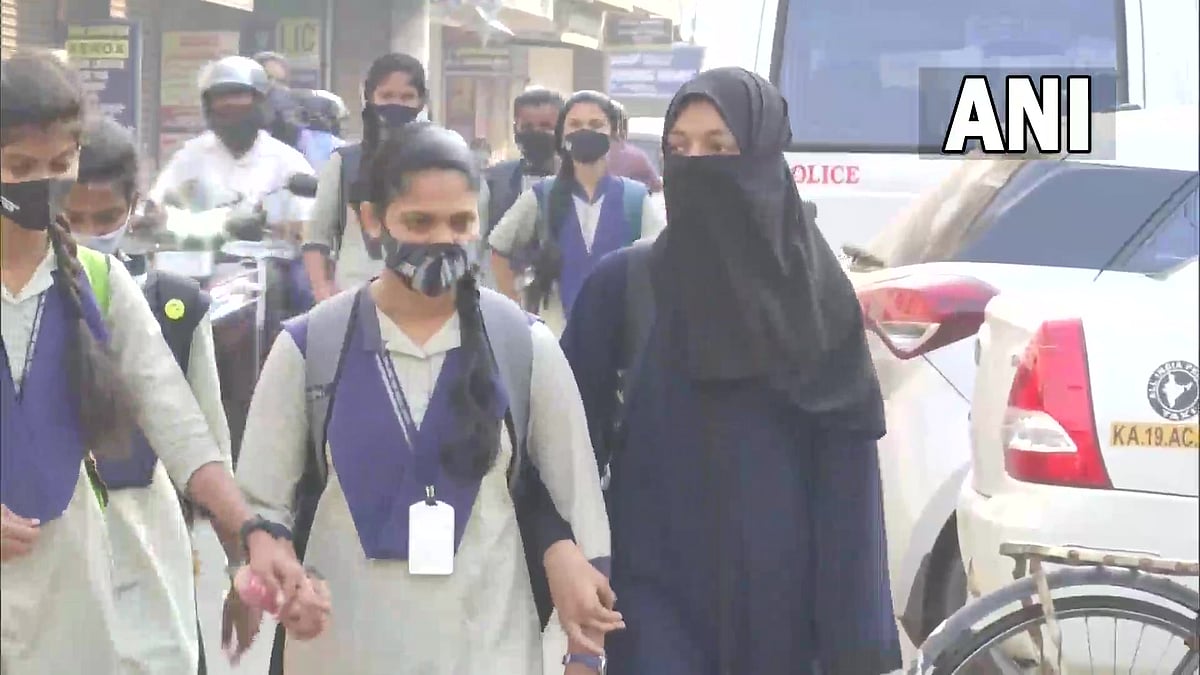The Karnataka government Monday told the High Court that the hijab was not an essential part of Islam.
Continuing his argument in the hijab case, Advocate General Prabhuling Navadgi, appearing on behalf of the state in the Karnataka High Court, said, "For protection under Article 25, the practice has to be essential to the religion itself."
Referring to three judgments -- the Sabrimala case, Venkata Swamy case, and Shiroor Mutt case -- the advocate general told a full bench headed by Chief Justice Ritu Raj Awasthi that earlier, the question was what is 'essentially religious'. Then there was a shift in the judicial approach and now the court needs to determine even if something was 'essentially religious', but it is 'essential to religion'.
"Thus, it has to be shown that wearing the hijab is essential to Islam," Navadgi said. "Making something essential to religion would be like a religious sanction," he added.
"The petitioners are seeking a declaration of a particular dress format to become part of religious sanction to bind every woman who follows the Islamic faith. That is the seriousness of the claim," the AG told the court.
Quoting the Sabrimala case, the AG said: "If a practice is optional, it has been held that it cannot be said to be ‘essential’ to a religion. A practice claimed to be essential must be such that the nature of the religion would be altered in the absence of that practice."
The following four principles should be applied to the present case to ascertain if the hijab was protected under Article 25, he said:
1. The practise should be fundamental to that religion;
2. If that practice is not observed, it would result in a change of the religion itself.
3. The practice must precede the birth of the religion itself. The foundation of religion must be based on that or must be simultaneously there along with the birth of religion. It must be co-extensive with that religion.
4. Binding nature. If cannot be optional. It has to be compulsive so that if one disobeys, he/ she cease to be part of that religion.
The advocate general will continue his arguments Tuesday.







